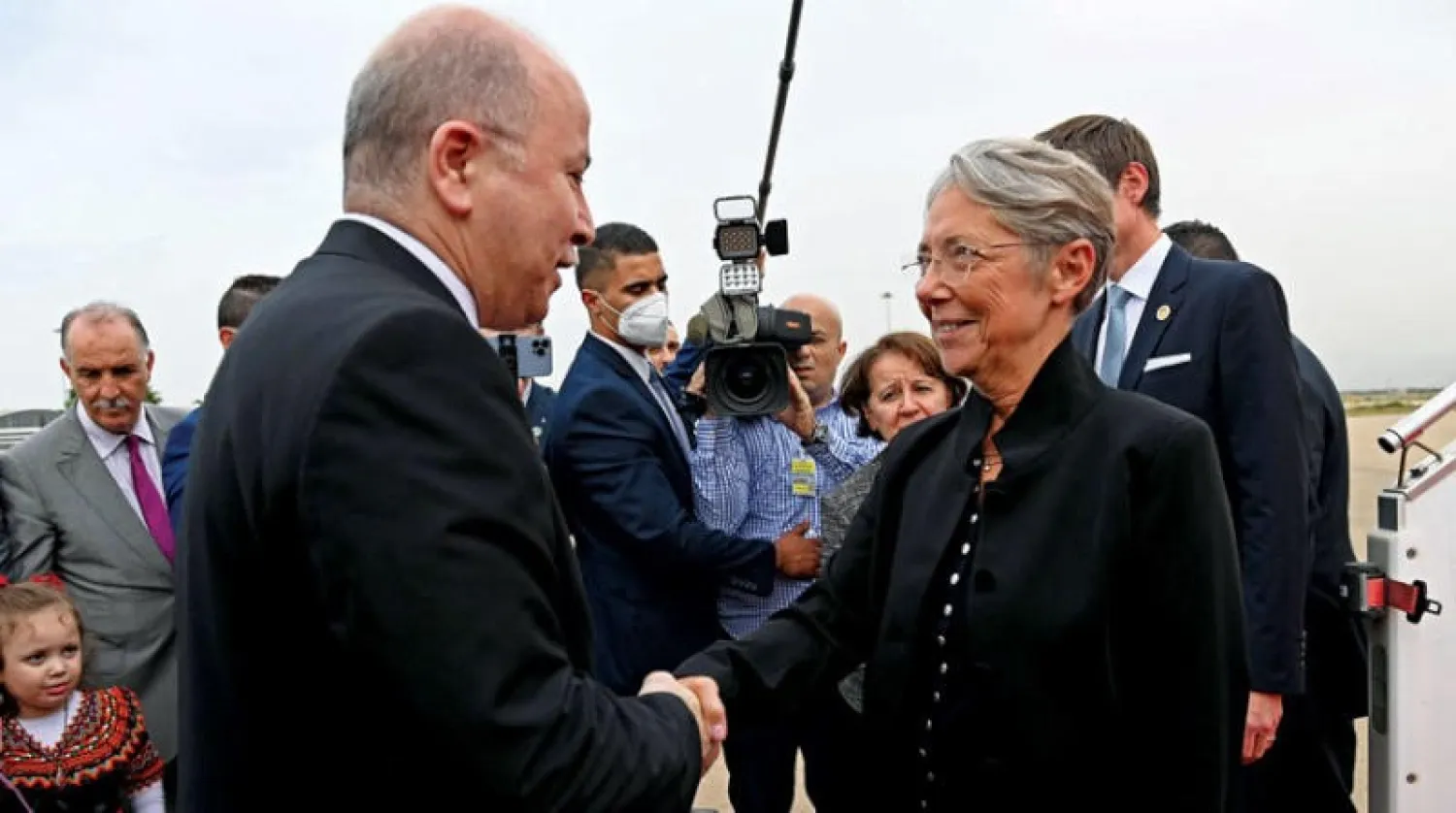French Prime Minister Elisabeth Borne visited Algeria on Sunday at the head of a high-ranking delegation, pushing for better economic ties and “overcoming the pain of the past."
Borne held talks with her Algerian counterpart Aimene Benabderrahmane.
The two-day consultations include partnerships in education and vocational training, renewable energies, investment, and "humanitarian exchange between the two shores of the Mediterranean."
The High Intergovernmental Committee, which discusses cooperation opportunities, will not address France's possible request to supply Algerian gas.
Borne stated in two interviews with local newspapers that gas represents only 20 percent of the French energy mix, stressing that her country does not depend heavily on natural gas.
Algeria represents about eight to nine percent of France's total gas imports. However, the prime minister announced that France wants to develop a partnership with Algeria in this sector, especially regarding liquefied natural gas.
Paris also wants "to increase the efficiency of its gas production capacity, which will increase its export capacity to Europe."
Borne said that France seeks a partnership with Algeria in the field of industry and research to reduce emissions of fossil energies and invest in renewable energies, especially solar energy.
She also expressed her country's desire to "develop other economic partnerships related to minerals and rare earth metals, which opens up prospects for cooperation between our two countries."
Last August, President Emmanuel Macron visited Algeria and was accompanied by the CEO of Engie, Catherine MacGregor, which raised hopes that Algerian gas could be pumped to France.
Regarding the issue of visas which angered Algerians after Paris reduced their quota to half last year, Borne said that the issuance of a permit to enter France is a "sovereign act," adding that her country wants it to be a more constructive process focusing on selective immigration, for students, entrepreneurs, political officials, researchers, cultural actors, and athletes.
She announced dialogue with the Algerian authorities to make cooperation in migration more effective, noting that strengthening legal immigration and thwarting illegal movements is mutually beneficial for both countries.
Algeria insists that France apologizes for its colonialism crimes. Borne ruled out such a step, saying her country's approach is to look at historical facts with humility and insight.
She recalled that Macron and President Abdelmadjid Tebboune agreed to create a committee of historians to work together to find points of agreement that would enable “the peaceful construction of memory.”
She explained that the committee is directed at examining the realities of the shared history, which would constitute a space for mutual recognition as a condition for the development of future relations.
Borne is accompanied by Sanofi, which has an insulin factory project, and four SMEs, Générale Energie, is considering the construction of a plant for recycling and processing olive pits.
The delegation also included Infinite Orbits, which has a project for Algeria's first microsatellite, Neo-Eco, which works on the treatment of waste such as asbestos, and Avril, which specializes in the processing of cereals.









